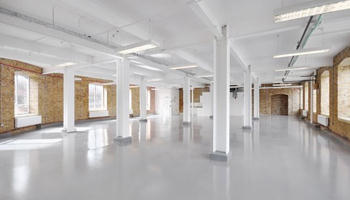Modern businesses, be they solo endeavours, scaling enterprises or anything in between, benefit exponentially from as much flexibility and adaptability as possible.
Modern businesses, be they solo endeavours, scaling enterprises or anything in between, benefit exponentially from as much flexibility and adaptability as possible. Nowhere is this more apparent when approaching workspace needs and demands, especially when starting a business and making the critical, and often stressful, decision about its very first physical space.
Traditional long-term office leases were, at one time, the only viable option as far as commercial property was concerned. However, while they may still give the impression of being cost-effective today, they do also require some careful evaluation. Elements such as undertaking a suitable building survey, to ensure what you are leasing is suited to your business, is a necessary consideration. They can similarly often lack the amenities, flexibility and growth potential that modern startups require.
By comparison, flexible office spaces offer an enticing combination of financial freedom, operational simplicity, and agility that traditional leases cannot match. Flexible offices and coworking spaces have grown in popularity, and this shift towards adaptable, productive and empowering office spaces reflects a pivotal change in how we work, collaborate, and drive our businesses towards growth. Understanding the impact this can have on your startup’s first space will enable you to find the best match for your unique business needs and growth trajectory.
Cost-effective flexible space
Flexible offices can be inherently more cost-effective in both the short- and long-term. Traditional commercial leases often require substantial upfront deposits, rent payments, and, in some cases, guarantees that can put entrepreneurs at a cash flow disadvantage before they’ve even set foot on the premises.
Many of these barriers are eliminated with flexible office and coworking spaces, offering exponentially lower upfront costs, allowing businesses more freedom to allocate their capital as they see fit. This is invaluable for startups and growing enterprises that may not have as many established revenue streams, particularly when figures indicate that
29% of businesses fail due to running out of money. Rather than tying up substantial funds in lease deposits and long-term commitments, founders can invest in the key business operations and functions, such as marketing, branding, product development, or recruitment.
In addition, flexible office models regularly include utilities, maintenance, and amenities in their pricing structure, providing new business owners with a simplified monthly expense, which can’t always be the case in privately owned or rented commercial leases. This transparency allows businesses to implement
money-saving strategies more effectively while maintaining operational flexibility.
Business scalability
A standard commercial lease often locks your business into office space for an extended period, which can easily create situations where your startup will quickly outgrow the space available, or, conversely, see you pay for space you never end up using.
Flexible office arrangements alleviate this issue by offering scalable solutions that give entrepreneurs the freedom to pay for only what they use. Whether you need to accommodate seasonal changes, a growing team, or temporary staff allocation for short-term projects, flexible spaces provide the agility that standard leases often fail to match.
Companies can easily upgrade to larger spaces, which is particularly helpful if coworking spaces are in built-up, business-heavy areas. They can also downsize during quieter periods, or access additional shared meeting rooms and event spaces at relatively short notice. Some startups can grow exponentially quickly, and without any ties to incumbent commercial landlords or agents keeping you from moving into larger spaces, flexible arrangements become invaluable.
Prime location availability
With UK office landlords anticipating a
54% growth in flexible or coworking space by 2030, it’s clear that businesses need workspace solutions that can adapt to varying occupancy levels and changing work patterns.
Traditional offices to lease can vary in location, from premium business districts (often more expensive) to tucked-away corners (often cheaper, but miles away from the nearest town). Flexible offices are often easily accessible, as with costs shared across multiple tenants, funding for infrastructure becomes easily manageable.
This shared model allows businesses to establish themselves in areas that would otherwise be financially unfeasible. The amount of improved
networking opportunities in these locations can be tremendously enriching and valuable, particularly for smaller enterprises looking to build strong relationships and partnerships.
What’s more, flexible office spaces typically include services that are expensive to take out privately, such as high-speed internet, printing, kitchen facilities, reception services, and so on. These features are invariably all managed by the space provider, reducing the overheads on your startup’s first space.
A hybrid business future
Work patterns are evolving with each passing year, accelerated by game-changing technology and post-pandemic employee working patterns. As a result, long-term commercial property commitments are not only riskier but less supportive for the modern workforce. They can severely limit a company’s agility, by locking it into a single location even when a company is in a prime position to expand into new markets. Flexible office models remove that anchor, empowering remote and hybrid businesses with the freedom to scale, adapt and seize market opportunities without delay.
Agility wins
For any startup making an initial entry into the physical workspace environment, the choice is clear. Flexible office spaces provide immediate cost savings, long-term scalability, valuable networking opportunities and the operational simplicity to adapt to a constantly shifting market. Making flexibility and adaptability central to your workspace strategy is the smart choice for building a vibrant and viable future for your business.
[Image source: Deposit photos]
Andy
Guest contributor







